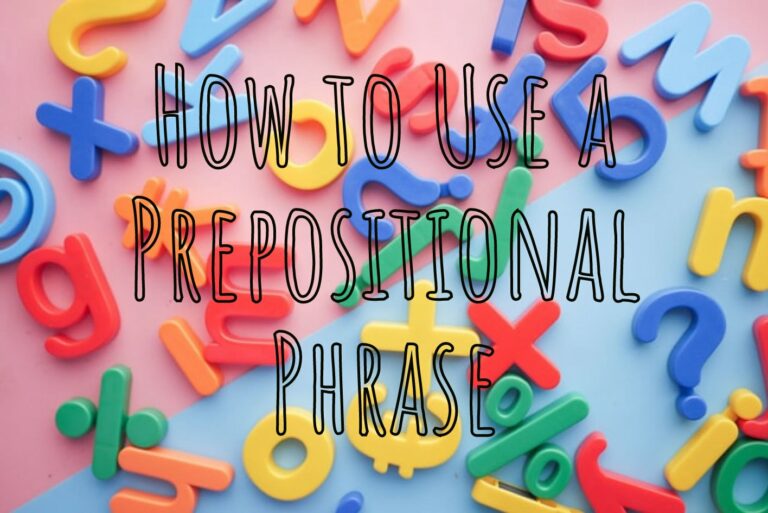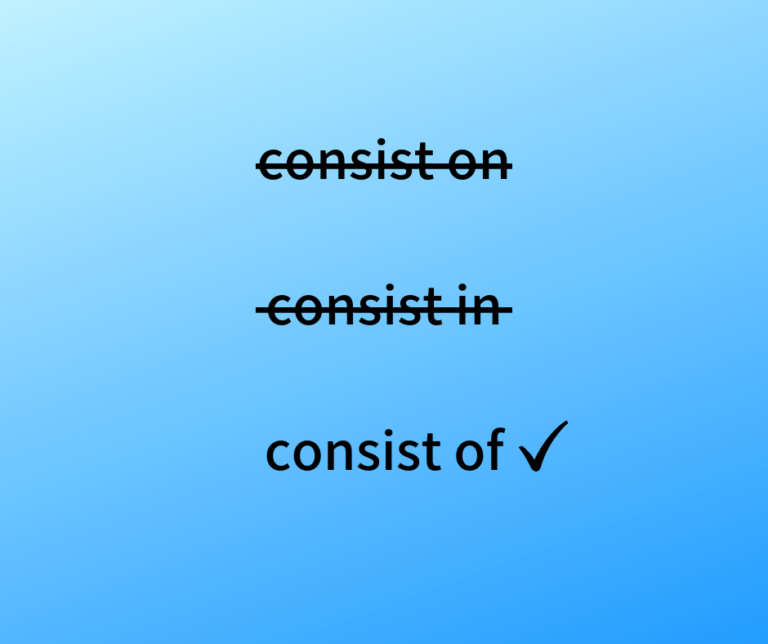100+ IN and ON Collocations
You probably know that—generally speaking—we use in to communicate that something is enclosed/inside of something, and we use on to communicate that something is over/resting on the surface of something else.
Sometimes you can apply this rule and correctly decide whether to use in or on. Other times, however, you simply have to throw logic out the window and learn the correct collocations (natural-sounding word partners).
Here is a collection of collocations with in and on, along with some example sentences.
After looking at the list, test your knowledge of in and on collocations with these practice exercises:
In and On Collocations 1
In and On Collocations 2
Collocations with IN
Here are some collocations with in that you should know.
delay in
“The government shutdown resulted in many delays in payment.”
in a car accident/crash
“If you are in a serious car accident, make sure you call 911 right away.”
in a fight
“My husband and I got in a fight last night.”
in a group
“We’d rather do the presentation in a group if that is okay with you.”
in a picture
“Do people really look heavier in pictures?”
in advance
“You need to reserve the conference room in advance.”
in agreement
“If we’re all in agreement, let’s move on to the next item on our agenda.”
in bed
“On Sunday mornings, I like to grab a cup of coffee and read in bed.”
in cash
“Will you give us a discount if we pay in cash?”
in charge
“Who is in charge of the investigation?”
in college/high/school etc.
“I got my first cell phone in 1998 when I was in high school.”
in confidence
“You weren’t supposed to tell anyone that. I told you in confidence.”
in connection with
“The police have made an arrest in connection with the shooting.”
in control
“I can help you, but it seems like you’re in control of the situation.”
in court
“Shirley is a lawyer, but she doesn’t often speak in court.”
in demand
“Coding skills are in high demand right now.”
in denial
“Mike was in denial about his drinking problem.”
in depth
“Tomorrow we’ll cover this topic in depth.”
in detail
“The senator described in detail all the specifics of the new tax bill.”
in favor of
“Are you in favor of the legalization of marijuana?”
in good/bad health
“I only want to be alive at age 100 if I’m in good health.”
in italics/bold
“This sentence is in italics.”
in love
“Many people first fall in love in high school.”
in one’s life
“My golden retriever was the best dog I’ve ever had in my life.”
in person
“You should talk to her about it in person. Don’t text her.”
in prison
“I’ve heard the food in prison isn’t particularly good.”
in private/public
“You should criticize your employees in private and praise them in public.”
in return (also in exchange)
“The hackers asked for millions of dollars in return for not releasing people’s financial records.”
in ruins
“The city was in ruins after the hurricane.”
in season
“Blueberries aren’t in season right now. The only ones you can get are imported.”
in shape
“Lots of people are trying to get in shape before beach season.”
in stock
“You should call the store to see if the jacket you want is in stock.”
in the dark
“I have no idea what they’re planning. They always keep me in the dark.”
in the mail
“The check is in the mail. You should get it in a few days.”
in the middle of something
“I’ll gladly help you with your homework, just not in the middle of the football game.”
in touch
“How many of your friends from college do you keep in touch with?”
in traffic
“I listen to podcasts in English when I’m stuck in traffic. It’s a good way to practice.”
in trouble
“Make sure you know the laws before you travel to another country. You don’t want to get in trouble far away from home.”
in tune with
“The mayor has been criticized for not being in tune with his voters.”
in use
“Some planes made in the ’70s and ’80s are still in use today.”
in writing
“Were you able to get a firm offer in writing?”
increase/decrease in
“In the 1990s, New York City saw a drastic decrease in crime.”
interested in
“Have you always been interested in politics?”
involved in
“I think we should all be more involved in our local communities.”
participate in
“Do you think it’s good to force children to participate in extracurricular activities?”
result in
“A stressful lifestyle can result in various illnesses.”
wait in line
“I’d never wait in line for 15 hours to get a new iPhone.”
Collocations with ON
Here are some common collocations with on that you should know.
attack on something
“This policy is a direct attack on women’s rights.”
ban on something
“Under the Eighth Amendment of the United States Constitution, there is a ban on ‘cruel and unusual punishment.'”
blame something on
“The average voter will blame the slow economy on the government.”
comment on
“The judge instructed the jurors not to comment on the case.”
concentrate on
“Right now, I’m trying to concentrate on my studies.”
cut back on
“If we cut back on spending, we could buy a house in a few years.”
decide on
“Have you decided on a venue for your wedding?”
depends on
“If your family depends on you financially, you should consider getting life insurance.”
focus on
“We believe there should be a greater focus on foreign languages in our high schools.”
in the mood for
“I’m in the mood for Mexican food tonight.”
insist on
“Our grandfather always insisted on doing home repairs by himself.”
on a date
“Dana isn’t going to answer her phone. She’s on a date right now.”
on a diet
“I’ve been on a diet for six months, but I haven’t lost any weight.”
on a list
“I have about a dozen things on my to-do list.”
on a mission
“Our team is on a mission to defend our championship title.”
on a team
“I’m on a soccer team with some friends from work.”
on a trip
“I normally read paperback books, but I always take my Kindle with me on trips.”
on average
“On average, college graduates earn much more than people without a university degree.”
on behalf of (also on someone’s behalf)
“Ms. Torres asked me to thank you on her behalf.”
on board
“Right now there are seven astronauts on board the International Space Station.”
on defense/offense
“Some basketball players don’t try as hard on defense as they do on offense.”
on display
“Many doctors put their medical degrees on display.”
on drugs
“The party got out of hand. Some students arrived who were obviously on drugs.”
on duty
“If Officer Garrison on duty tonight?”
on film/video/camera
“We’re so happy we captured our daughter’s first steps on camera.”
on fire
“Protesters set several cars on fire.”
on good/bad terms
“Felipe says he’s on pretty good terms with his ex.”
on one’s block
“Several young men on our block joined the military after they graduated high school.”
on one hand…on the other hand
“On one hand, a college education will help you find a good-paying job. On the other hand, college tuition is incredibly expensive, and you’ll likely be in debt for years.”
on pace
“I’m on pace to read over 50 books this year.”
on purpose
“Don’t yell at me! I didn’t break the vase on purpose.”
on sale
“You can save money at the grocery store by only buying what is on sale.”
on someone’s side
“You don’t have to convince me. I’m on your side.”
on strike
“School teachers recently went on strike in Los Angeles.”
on the beach
“There’s nothing better than reading a book on the beach.”
on the fence
“Many voters are still on the fence about who to vote for.”
on the phone
“It’s strange how I always walk around the house when I’m on the phone.”
on the verge of
“Caitlin seemed on the verge of tears.”
on tour
“When does Justin Bieber go on tour again?”
on track
“We’re on track to have our most profitable year ever.”
restrictions on
“Are there many restrictions on imports in your country?”
spend money on
“How much does the average family spend on groceries per month?”
vote on something
“The student body will vote on a class president.”
war on (drugs, poverty, crime, etc.)
“The war on drugs has been largely unsuccessful at preventing illegal substances from entering the United States.”
Collocations with both IN and ON
Sometimes we can use both in and on in an expression, but with a change in meaning.
A lot of times the difference is obvious.
For example, this person is in a car (inside it).

But this person is on a car (resting on the surface of it).

Other times, the difference is less obvious.
The difference between the following pairs tends to confuse English learners.
on time vs. in time
On time is the opposite of late. If you are on time, it means you do something before an agreed/established time.
If you are in time for something, it means you didn’t miss your chance to do something.
If you’d like examples and a more complete explanation, check out these commonly confused preposition collocations.
on the way vs. in the way
On the way means that something is either (a) in progress/transit ,or (b) can be found along the route to somewhere.
In the way means that something is preventing something from happening or blocking something.
You can find a more complete explanation and examples in the article linked to above.
on principle vs. in principle
On principle means because of one’s beliefs. If you refuse to do something on principle, it means you refuse to do it because it conflicts with a belief that you have.
In principle means that something is possible in theory, but might not actually happen.
Practice
Looking at a list of in and on tendencies won’t drastically help you with prepositions. If you really want to get better, you’ll have to practice.
These two exercises require you to choose in or on to complete the collocation:
In and On Collocations 1
In and On Collocations 2
To practice collocations more, you should:
• Write down collocations you’d like to learn and create sentences that help you remember the collocations. For example, if you’d like to remember the collocation concentrate on, you could write sentences that help you connect the collocation to your life. So if you have annoying neighbors who play the guitar while you’re trying to study, you might write something like “It’s hard for me to concentrate on my schoolwork when my neighbors are playing the guitar.”
• Take notice of the English collocations that are different from the collocations in your native language. For instance, if you speak Spanish, you say depende de, which literally translates as “depends of.” In English, we say “depends on,” so this collocation is troublesome for Spanish speakers. Identify and practice the collocations that will be hard for you because of your native language.
• Read. Reading is always good advice. You’ll never have a phenomenal English vocabulary if you’re not reading regularly. Read in English as much as possible.
Finally, if you’d like to practice more collocations, check out the Practice Exercise section of this site.






